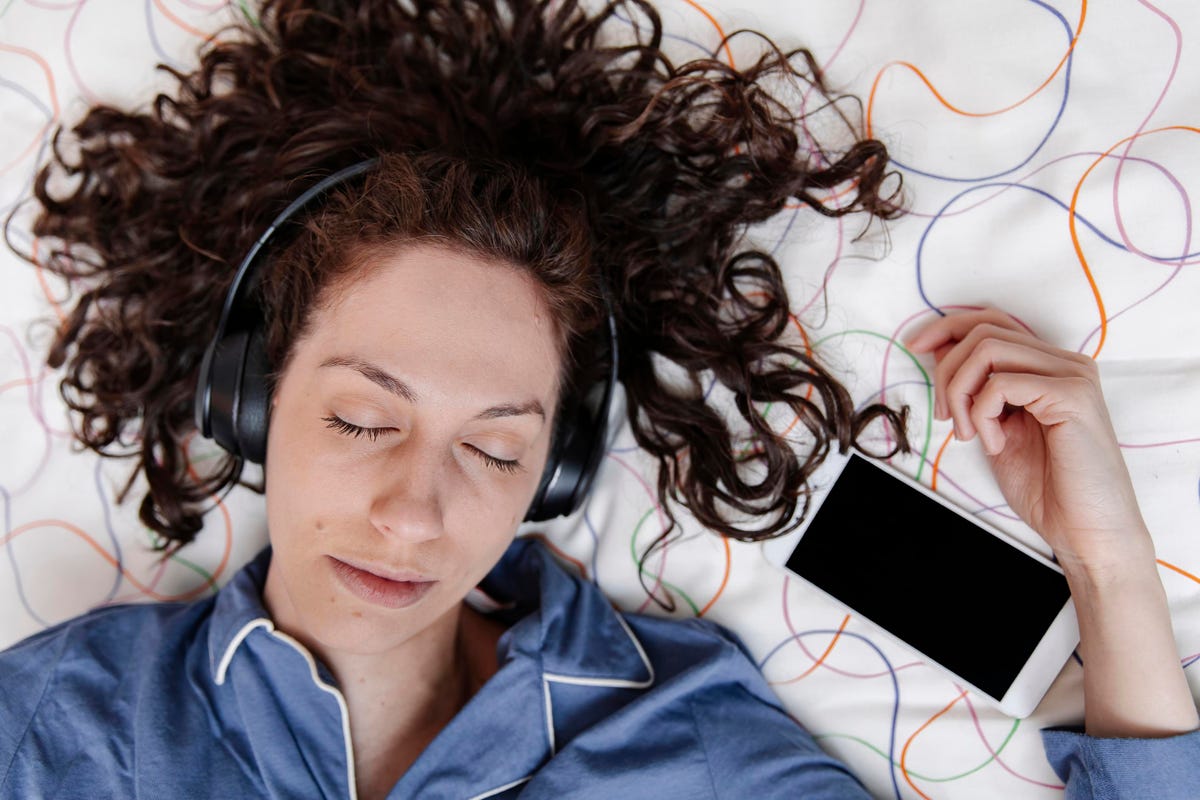For some people, falling asleep is easy. For others, it’s a constant struggle and a search for the perfect bedtime routine to help them nod off to dreamland. Chamomile tea, exercise, melatonin, no digital devices after dinner, sleep masks, ear plugs – they’ll try anything. That includes sleep playlists, carefully curated by someone who assures you that this music is the key to final dozing off. But what makes for good sleep music? A new study analyzed hundreds of Spotify sleep playlists to find the musical equivalent of the Sandman.
A new research study looked at Spotify sleep playlists to find out what kind of music people listen … [+]
gettyResearchers from Aarhus University & The Royal Academy of Music in Denmark searched Spotify for playlists that people created to fall asleep to. They collected almost a thousand playlists, each with over a hundred subscribers, to find out if there is a particular type of music that people listen to when they’re trying to fall asleep.
Altogether, these playlists included over two hundred thousand tracks. As you might expect from sleep playlists, many of these were instrumental tracks, slow music, and not very loud. The biggest category the researchers identified was “ambient music”. But there were a few other categories of music as well, with some surprisingly louder or faster-paced tracks such as “Dynamite” by BTS and “Lovely” by Billie Eilish and Khalid.
This is not the first study to attempt to find out what music makes us fall asleep, and also not the first time that the results have been a bit unexpected.
Several studies have found that listening to music before bed could make it easier to sleep, but the music people prefer to listen to is not always the best for a restful night. For example, according to a 2021 study from Baylor University, people can wake up at night from having a song stuck in their head, so it’s not a good idea to listen to catchy tunes before bed. But of course people still did that. Sleep researcher Michael Scullin, who led the earworm study, told Baylor University that “almost everyone thought music improves their sleep, but we found those who listened to more music slept worse.”
Perhaps that also means that Spotify sleep playlists don’t actually include music that’s good for sleeping. After all, if people can’t accurately judge which music will help them sleep, nothing is stopping them from putting a catchy song on a sleep playlist or subscribing to a playlist with a few more upbeat tunes on it.
The new study from Denmark could only see which playlists people subscribed to – not how well the listeners actually slept. But in their research paper, the researchers suggest that there could be a reason for listening to faster and louder music before bed. “One could argue that music with high Energy and Danceability would be counterproductive for relaxation and sleep,” they write, “however it is possible that they could increase relaxation when considering the interplay between repeated exposure, familiarity and predictive processing.” In other words, people might just want to hear their favorite music to end the day.
So we still don’t know exactly which music is actually good for sleeping, but this study at least narrowed down what people choose to listen to before bed. And in the future that could help other researchers figure out what aspects of music actually make you fall asleep and stay asleep.
